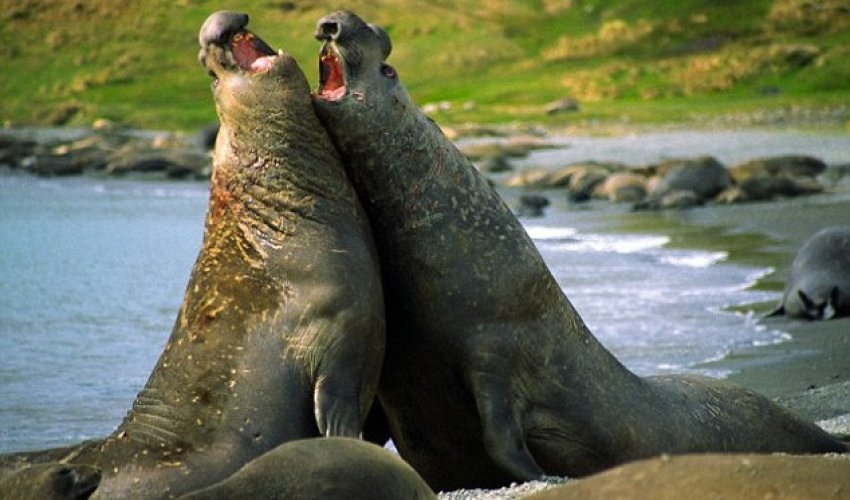Why do men exist? To ward off DISEASE

It has been a central argument in the battle between the sexes for centuries - what is the point of men and sex?
While most men will argue they have played a central role in the advancement of humankind, in some species their presence makes less sense.
But now scientists have found that males do have a purpose - namely, they ensure competition for females, which helps a species stay healthy.
In many species, males provide no help in raising offspring - often only providing the sperm needed to fertilise eggs.
Evolutionary selection - known for weeding out inefficiency in the natural world - should have led to reproduction without sex as far greater numbers of offspring can be produced this way.
But now scientists believe they have unravelled why this form of reproduction has remained relatively rare within the animal kingdom - and the answer is surprisingly obvious.
Men contribute to the health and wellbeing of a population through a process known as sexual selection, where the fittest males win the mates and pass on their genes.
Professor Matt Gage, who led the work at the University of East Anglia, said: 'Almost all multicellular species on earth reproduce using sex, but its existence isn't easy to explain.
'Sex carries big burdens, the most obvious of which is that only half of your offspring - daughters - will actually produce offspring. Why should any species waste all that effort on sons?
'Competition among males for reproduction provides a really important benefit, because it improves the genetic health of populations.
'Sexual selection achieves this by acting as a filter to remove harmful genetic mutations, helping populations to flourish and avoid extinction in the long-term.'
To understand this process the researchers, whose work is published in the journal Nature, spent ten years breeding Tribolium flour beetles in the laboratory and watched how they evolved.
They varied the intensity of the sexual selection during each reproductive stage in different groups of the beetles.
In some populations up to 90 males competed for the affections of just 10 females while in other just a single male was available to mate with a single female in monogamous pairings.
After about 50 generations, the researchers examined the genetic health of each population.
(dailymail.co.uk)
www.ann.az
Similar news
Similar news




































 Photo
Photo 



 Video
Video 

